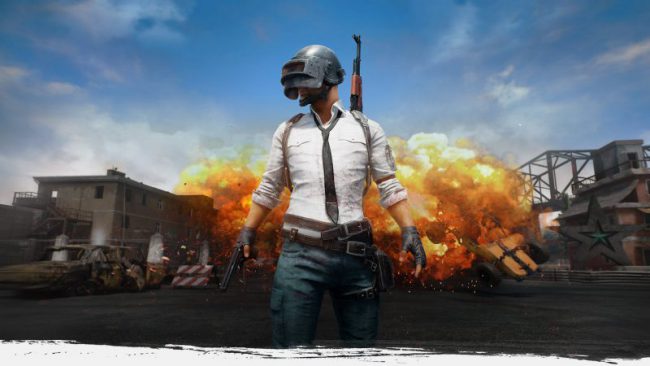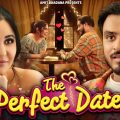
In this hugely popular Battle Royale-style game, all nuance is gone – it’s nothing but rage and death
The island of Erangel is kind of beautiful. It has rolling hills and lush valleys, and there are little villages dotted along the coastlines. Just one thing, though. Everyone here wants to kill you.
This is PlayerUnknown’s Battlegrounds (PUBG), the hit online multiplayer game that sold more than 24m copies last year. Originally developed as a modification of the military shooting sim, Arma 2, it’s now a standalone release on PC and Xbox One and fans are obsessed with it. Inspired by the Hunger Games books and movies, as well as Kinji Fukasaku’s cult film Battle Royale, it sees 100 players being dropped on to the island, before searching for useful items such as backpacks, body armour and guns and then trying to kill each other. The last player standing wins.
To crank up the tension, useful items are randomly placed around the map in hundreds of deserted buildings, so for long periods of each round, you’re just running nervously through streets and rural locations, desperately looting homes and garages, looking out for other humans. If you can’t find guns, you might have to fend people off with a machete or your fists. Whatever you’ve got, fights are nasty, brutish and short. For most of the time you’re alone, wondering if the office block you’re currently approaching will be the one where someone pulls an AK-47 on you from behind a wardrobe.
To be honest, you couldn’t get a game more redolent of its time in history than PUBG. It is utterly nihilistic, confrontational and psychopathic. Every encounter is zero sum. It’s interesting that developer Brendan Greene based the game on another modification of Arma called DayZ, a zombie survival game where dozens of players roam an eastern bloc country attempting not to get eaten by monsters. In that game, if you met another human, there was always the possibility that you could team up and create an ad-hoc community – there was a tinge of optimism, of basic human decency. PUBG shoots that in the face. All nuance is gone – it’s all rage and death now. It’s basically social media in 2018.
Of course, there have been every-player-for-themselves online shooting games for years, but titles such as Doom and Call of Duty are structured to function like sports; they take place in purpose-built arenas of militarised action, and everything feels artificial. But in PUBG, the fighting takes place in a large, naturalistic location. The abandoned houses are filled with the detritus of real life – television sets, laptops, sofas – but all the civilians are gone. We can only guess what’s happened to them. After a year of horrific news reports from the pulverised streets of Aleppo, PUBG reverberates with quiet horror.
And that’s the thing: PUBG is a horror game really. Everything feels so random and deadly. You’re often killed by someone you never see. You might be walking through a clump of trees trying to get to an outhouse that you hope will contain some ammo or a motorcycle helmet and, poof, you’re gone. It’s like that scene at the end of Night of the Living Dead where, having successfully fought off zombies for an entire night, the lead character is shot in the head by a passing cop. Of course, in George Romero’s movie, this was a damning indictment of institutional racism in the police force, but in PUBG, it just means that some 14-year-old with a sniper rifle was more observant than you.
There are people who play PUBG and nothing else. In an interview last year, Greene said that more than six million players have spent more than 100 hours in the game. Why would people spend so much time in a place where all the nuances of civilised human society have been eroded and dozens of anonymous people actively wish violent deaths on them? I guess I should ask any woman on Twitter.
More positively, PUBG tells us that video games can be incredibly compelling when the stories are left to the players themselves. There is no narrative, no backstory, no world-building in PUBG; every player creates and tells their own story of survival, luck, death and misfortune. I once got into the final three armed only with a frying pan. I once got into a car chase with another player that ended in both of us accidentally driving into a river. We got out and had a fistfight. And then a 14-year-old with a sniper rifle shot us both. Given how we live right now, those stories are more starkly meaningful to me than 50 hours of patchily acted cut-scenes filled with dragon lore.
In PUBG, as each round goes on, the playable area is reduced so that players are forced closer and closer together. There’s no escape. Eventually you are going to run into someone else and the consequences will be sudden and devastating. Not only does PUBG let you tell your own stories, it lets you tell the stories that make sense in our times: there is chaos, there is fury, and every encounter is loaded with dread and horror. Welcome to 2018!






Leave a Reply